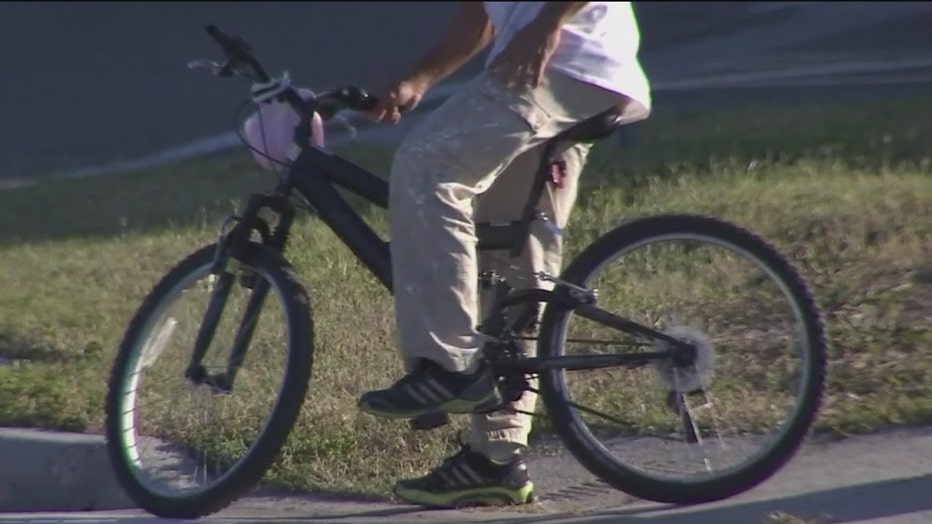Resisting arrest without violence will not be prosecuted for bicycle stops in Tampa, state attorney says
TAMPA, Fla. - The Hillsborough County State Attorney has instituted a new policy when it comes to stops of bicyclists, in order create more fairness for who ends up in court.
The phrase "Biking while Black" burst onto the scene in 2015, when it was found that the Tampa Police Department was stopping an atypical number of bicyclists, and 80% of those who were stopped were Black. The number was so disproportionate, it drew the ire of the Department of Justice.
The finding led to a federal report that found the program was ineffective in stopping crime, and that TPD placed an undue burden on bikers who are Black.
"What it did do, unintentionally, is have a disparate impact on people of color," said Ronald Davis of the Dept. of Justice's Community Oriented Policing Office, in 2016.
Three years later, the percentage dropped to under 60%, after the feds warned it was not as good at reducing bike thefts or promoting bike safety as it was in saddling young men with criminal records.

"There is a thing called rich man's justice and poor man's justice," said Stanley Gray of the Urban League of Hillsborough County. "If you don't have means, and if you don't have parents who understand the system, you get caught up in the system."
Just six weeks ago, Hillsborough County State Attorney Andrew Warren sent a memo saying it is no longer appropriate to prosecute those who are stopped on bikes, whose only charges are that they resisted an officer without violence.
The memo says Black defendants make up 33.6% of misdemeanor cases, but 49% of all resisting without violence defendants.
More than 70% of cases that spring from a pedestrian or bike stop have Black defendants.
"These stops don't actually have any impact on public safety and they undermine the trust between law enforcement and the community they serve," said Warren.
But he says it will have an impact on the 40 cases per year that this would apply to.
The memo says the policy does not pass judgement on the reasonable suspicion or probable cause necessary to conduct a bike stop, and the state attorney's office continues to recognize they are a valid law enforcement instrument under the appropriate circumstances.
"It may have a small impact because it's not a lot of cases we are talking about," said Warren, "but it is reflective of the innovative approach we are taking to find solutions to make our system better."
Gray says it’s an important step in large scale criminal justice reform, which advocates say has had mixed-results statewide.
"We need to have continued dialogue, continued analysis, and continual actions until we get to a point where we can actually say there is no class discrimination, and that justice and liberty is equal for everyone," said Gray. "It's not there yet. This is a good start."
The state attorney's office says the policy does not apply to arrests that are made during bike stops if the criminal charges stem from other things.

